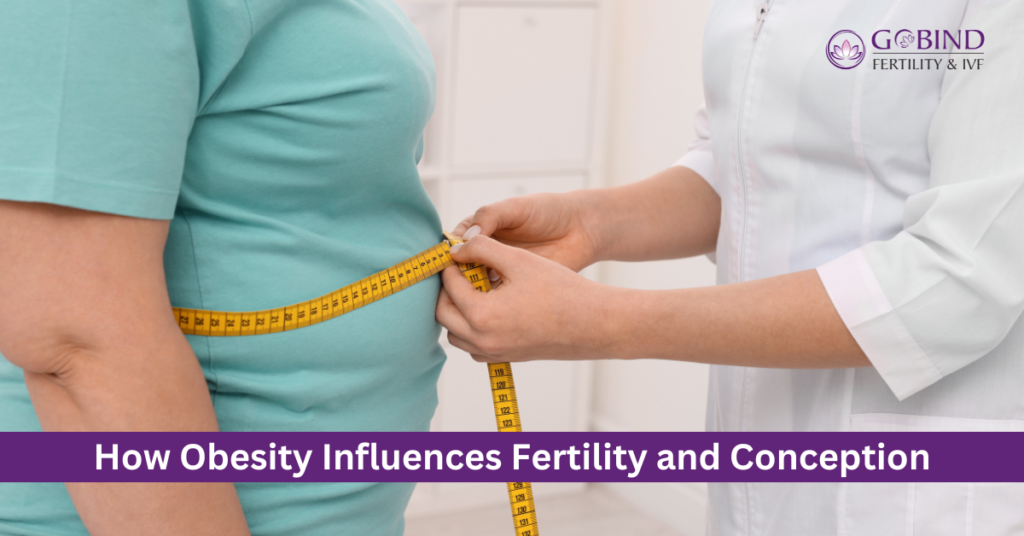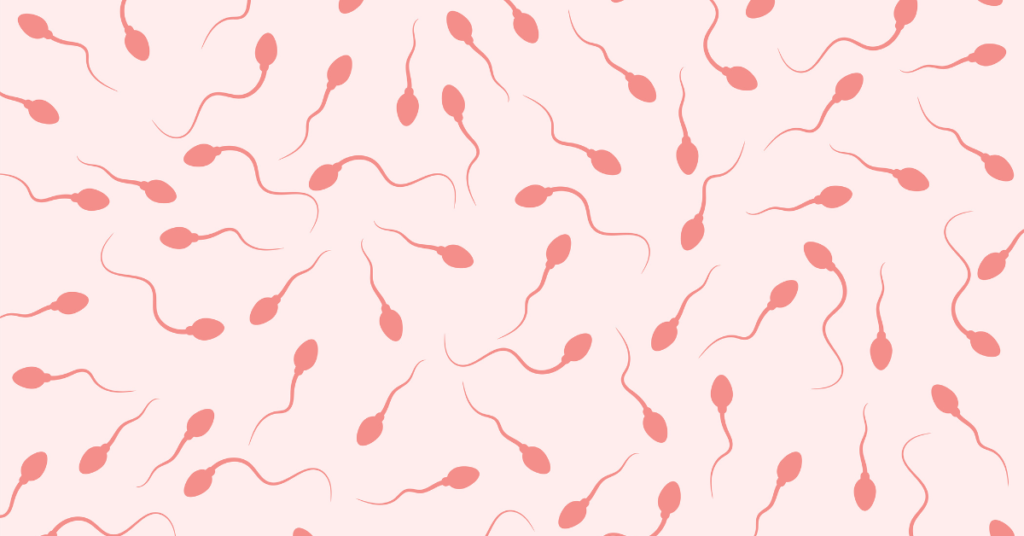How Obesity Influences Fertility and Conception

Global obesity rates are rising, which has brought attention to the condition’s detrimental effects on health, including difficulties getting pregnant. Hormonal imbalances and disturbances in reproductive functions are linked to obesity, which has an impact on the capacity of both men and women to become pregnant. The intricate relationship between obesity and infertility will be explored in this article, along with how important obesity is for hormonal balance and reproductive processes, how it’s linked to PCOS and infertility, and how IVF treatments affect obese people.
It will also emphasise how crucial it is to control weight and make lifestyle changes to improve the chances of getting pregnant.
Obesity’s Effects on Reproductive and Hormonal Balance
Because of the increased activity of aromatase in adipose tissues, which converts androgens to oestrogens, obesity has a considerable impact on hormonal balance by increasing the synthesis of oestrogen. This high dose of oestrogen has the potential to upset the hormonal balance required for healthy reproduction. Furthermore, changes in adipokines like leptin and adiponectin, which are essential for controlling reproductive hormones, are linked to obesity. Obese people frequently have high amounts of leptin, which can negatively impact fertility by causing anovulation and irregular menstruation.
Effects on Menstrual Cycles and Ovulation
Obesity has a significant effect on menstrual periods and ovulation. Increased oestrogen production from excess body fat may obstruct the hormonal signals necessary for regular ovulation. Fertility is decreased by this hormonal imbalance, which frequently causes irregular or nonexistent menstrual cycles.

Impact on Male Sperm Quality and Production
Additionally, because obesity reduces sperm quality and quantity, it negatively impacts male fertility. Men with higher body fat can have lower testosterone and higher oestrogen, which throws off the hypothalamic-pituitary-gonadal (HPG) axis’s negative feedback loop, which is essential for sperm generation. Reduced sperm numbers and less-than-ideal sperm health are the results of this hormonal imbalance. Furthermore, obese people have changed sperm cell morphology and molecular structure, which further reduces the chances of a successful conception.

The Connection Among PCOS, Infertility, and Obesity
Obesity plays a major role in PCOS, a common illness marked by problems with reproduction, hyperandrogenic hormones, and metabolism. Overweight and obesity are common in PCOS-afflicted women, which aggravates symptoms including insulin resistance and hyperandrogenism. Increased body weight exacerbates this insulin resistance, which is frequently observed in PCOS, exacerbating symptoms and complicating metabolic processes.

Effect of Obesity on the Symptoms and Course of PCOS
In addition to raising the chance of getting PCOS, obesity exacerbates its symptoms. Higher levels of androgen and insulin, which are essential in the pathophysiology of PCOS, are among the more severe symptoms experienced by obese women with PCOS. Insulin resistance and extra body fat interact to create a vicious cycle that increases androgen release from the ovaries, further disrupting ovulation and exacerbating monthly abnormalities.
1. Increased Androgen Production: PCOS symptoms such as acne and hirsutism are exacerbated by higher body mass, which also raises androgen levels.
2. Worsened Insulin Resistance: One of the main characteristics of PCOS is increased insulin resistance, which is exacerbated by the buildup of fat, especially visceral fat.
3. Compromised Reproductive Function: Because obese PCOS patients have anovulatory cycles and are less sensitive to reproductive therapies, obesity is associated with decreased fertility rates.
Obstacles and Results of IVF in Obese People
The success rates of assisted reproductive technologies (ART), such as in vitro fertilisation (IVF), are greatly impacted by obesity. According to studies, obese women frequently need larger gonadotropin dosages and experience more cycle cancellations, which lowers the quality of their embryos and lowers the likelihood of becoming pregnant.
Impact of Obesity on the Results of Embryo Implantation and Pregnancy
The difficulties influence not just ART operations but also the implantation of embryos and the general course of pregnancy. Reduced rates of implantation, pregnancy, and live births are observed in obese persons, along with a higher probability of miscarriage. Obesity specifically affects ovulation and endometrial growth, both of which are necessary for a successful implantation and a long-lasting pregnancy. Obese women have high miscarriage rates, which emphasises the harmful impact of excess weight on reproductive health. You can get a consultation from a fertility expert in hisar, if you are also struggling with obesity and fertility.
Changing Your Lifestyle and Losing Weight to Increase Fertility
Reaching a healthier weight might encourage ovulation cycles that are more consistent and reduce insulin resistance, which frequently contributes to erratic or nonexistent ovulation.
Losing weight is also associated with improved pregnancy and delivery outcomes, including a lower risk of macrosomia, preterm birth, and gestational diabetes.
Exercise and Nutritional Guidelines
Adopting a balanced diet and consistent exercise routine are essential for enhancing fertility. All the food groups should be represented in a healthy diet, with a focus on whole grains, fruits, vegetables, lean meats, and healthy fats. It is advised to engage in 150–300 minutes of regular physical activity, such as cycling, swimming, or walking, every week to maintain a healthy weight and enhance all body systems, including reproductive health.
It is evident from the investigation of obesity’s complex effects on conception and fertility that being overweight seriously upsets hormonal balance, interferes with regular reproductive processes, and exacerbates diseases such as Polycystic Ovary Syndrome (PCOS), which reduces fertility in both men and women.
FAQs
1. How does excess weight influence fertility and the effectiveness of fertility treatments?
Ans: Excess weight can significantly impact female fertility by disrupting the hormonal balance that regulates the menstrual cycle. Overweight and obese women tend to have higher levels of leptin, a hormone produced in fatty tissue, which can lead to reduced fertility.
2. What are the effects of obesity on the ability to conceive?
Ans: Obesity can cause irregular menstrual cycles and may prevent ovulation, thereby affecting conception. Even in cases where obese women experience regular periods, their chances of pregnancy are generally lower compared to women who maintain a healthy Body Mass Index (BMI).
3. In what ways does obesity interfere with the mechanisms of infertility?
Ans: In males, obesity is linked to decreased sperm production, including conditions like oligospermia (low sperm count) and azoospermia (no sperm cells). Obesity also causes insulin resistance and increases the peripheral conversion of androgens to estrogens, which disrupts hypothalamic signalling and lowers testosterone levels, negatively impacting fertility.
4. How does being overweight affect women’s reproductive health?
Ans: Obesity in women can lead to several reproductive issues, including menstrual disorders, infertility, miscarriage, and adverse pregnancy outcomes. Additionally, obesity increases the risk of diabetes and promotes higher estrogen production due to the increased aromatase activity in adipose tissues.
